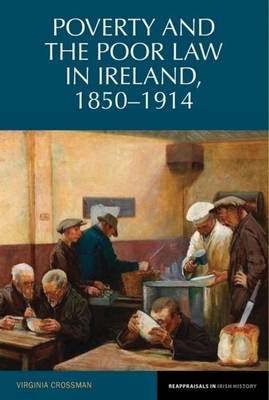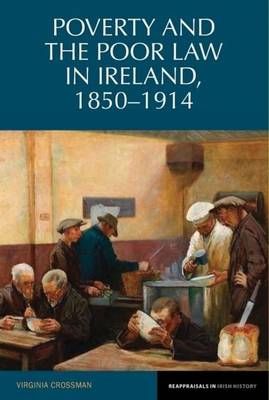
- Retrait gratuit dans votre magasin Club
- 7.000.000 titres dans notre catalogue
- Payer en toute sécurité
- Toujours un magasin près de chez vous
- Retrait gratuit dans votre magasin Club
- 7.000.0000 titres dans notre catalogue
- Payer en toute sécurité
- Toujours un magasin près de chez vous
Description
The focus of this study is the poor law system, and the people who used it. Introduced in 1838, the Irish poor law established a nationwide system of poor relief that was administered and financed locally. This book provides the first detailed, comprehensive assessment of the ideological basis and practical operation of the poor law system in the post-Famine period. Analysis of contemporary understandings of poverty is integrated with discussion of local relief practices to uncover the attitudes and responses of those both giving and receiving relief, and the active relationship between them. Local case studies are used to explore key issues such as entitlement and eligibility, as well as the treatment of 'problem' groups such as unmarried mothers and vagrants, thus allowing local and individual experience to enrich our understanding of poverty and welfare in historical context. Previous studies of poverty and welfare in Ireland have concentrated on the measures taken to relieve poverty, and their political context. Little attempt has been made to explore the experience of being poor, or to identify the strategies adopted by poor people to negotiate an inhospitable economic and social climate. This innovative interrogation of poor law records reveals the poor to have been active historical agents making calculated choices about how, when and where to apply for aid. Approaching welfare as a process, the book provides a deeper and more wide ranging assessment of the Irish poor law than any study previously undertaken and represents a major milestone in Irish economic and social history.
Spécifications
Parties prenantes
- Auteur(s) :
- Editeur:
Contenu
- Nombre de pages :
- 272
- Langue:
- Anglais
- Collection :
- Tome:
- n° 4
Caractéristiques
- EAN:
- 9781789620559
- Date de parution :
- 08-10-19
- Format:
- Livre broché
- Format numérique:
- Trade paperback (VS)
- Dimensions :
- 155 mm x 231 mm
- Poids :
- 408 g

Les avis
Nous publions uniquement les avis qui respectent les conditions requises. Consultez nos conditions pour les avis.






